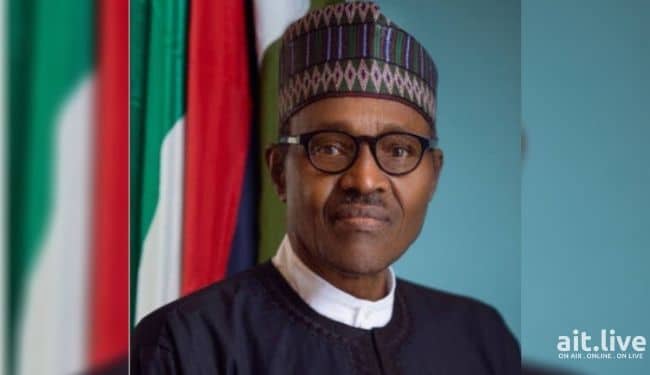President Muhammadu Buhari has commended the outstanding support and guidance provided by the Presidential Economic Advisory Council (PEAC).
Speaking during a virtual audience with PEAC members on Tuesday in Abuja, the President urged them to come up with ideas to help the country exit “our very terrible state of development, characterised by a large population of poor people, serious infrastructure deficit, lack of housing and a vulnerable economy now haunted by the COVID-19 pandemic and collapse of the oil sector and its effect on the Gross Domestic Product (GDP).”
The PEAC in a statement issued by the Senior Special Assistant to the President on Media and Publicity Garba Shehu noted that, while making a presentation to President Buhari, had commended the administration for implementing several of its recommendations, despite a number of tough choices made in order to put the country’s economy on a higher growth path.
The Chairman of PEAC, Professor Doyin Salami, had specifically expressed delight with the ongoing review of the Medium Term Expenditure Framework (MTEF) and the 2020 Budget in view of the disruptions caused by COVID-19; the deregulation of the pump price of Premium Motor Spirit (PMS); approval for the implementation of the Oronsaye Report on rationalisation and restructure of federal ministries, departments and agencies (MDAs), as well as the adjustment of the exchange rate of the Naira.
He, however, noted that more needed to be done to increase efficiency, coordination and accountability on the part of MDAs.
The PEAC welcomed the Economic Sustainability Plan (ESP) produced by the Economic Sustainability Committee (ESC) headed by Vice-President Professor Yemi Osinbajo and adopted by the Federal Executive Council (FEC), but warned that in the implementation of the N2.3 trillion spending plan, a number of problems may arise which if unattended, could hamper smooth implementation.
The Committee advised among others, that the ESP should be implemented using the existing institutional and administrative structures; that attention be paid to sources of funding to avoid inflation; ensure that priorities, targets and time limits be set for all projects to be completed within the 12-month life-span of the ESP.
But where this is not achieved, such projects should be rolled into the new Economic Recovery and Growth Plan (ERGP II).
The PEAC recommended that the ESP must promote “export-oriented production strategies;” ensure the use of local resources; curtail post-harvest losses in agriculture now put at between 40-60 per cent and above all, the need to make the economy attractive to “non-debt” private sector-funded investment to cut the rising cost of debt services.
Read Also: Breaking: Buhari’s Minister in shouting match with lawmakers over 774,000 jobs
Other recommendations included the need to embark on mass housing schemes to create jobs, financed through a Public Private Partnership arrangement; the urgent need to move away from multiple exchange rates to a unified currency exchange rate, and to ease the environment of doing business in the country.
President Buhari accepted the immediate need to activate the proposal by the PEAC on the Public Policy Coordinating office under the office of the Secretary to the Government of the Federation as he gave further assurances that “we will continue to listen to you and do our best.”
Other members of the PEAC are Dr Mohammed Sagagi – Vice-Chairman; Prof. Chukwuma Soludo; Prof. Ode Ojowu: Dr Shehu Yahaya; Dr Iyabo Masha; Mr Bismarck Rewane and Dr Mohammed Salisu – member/Secretary.
Editor: Tunde Orebiyi








